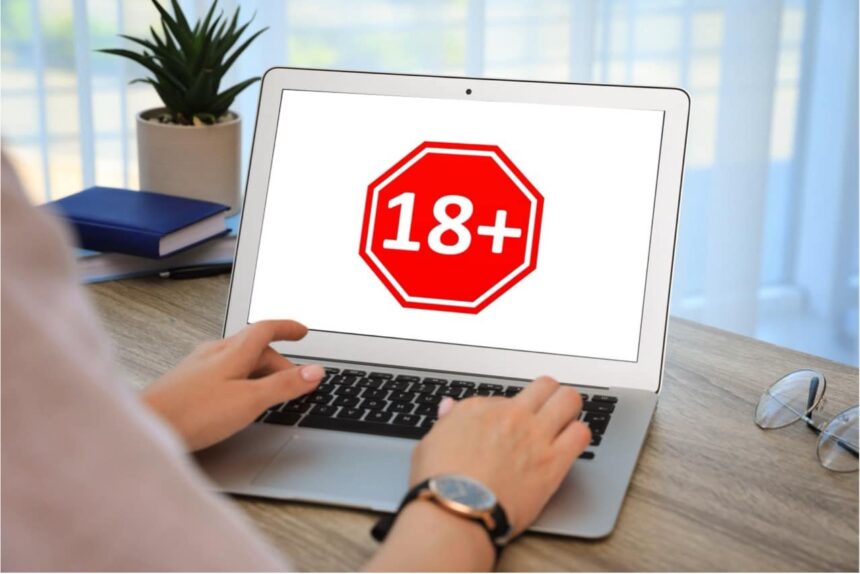In today’s digital landscape, businesses across multiple industries are required to incorporate age verification systems into their online onboarding processes to meet regulatory standards and safeguard vulnerable individuals. Whether it’s the sale of alcohol, tobacco, gaming services, dating platforms, or financial products, age verification plays a crucial role in ensuring minors do not gain access to products, services, or content intended for adults.
In this article, we will explore how remote age verification systems function, the different verification methods available, and the sectors that must implement them.
What is Age Verification?
Age verification refers to the process of confirming that a user is legally eligible to access certain products, services, or content based on their age. With the growing reliance on online platforms, age verification systems have become an integral part of digital onboarding procedures. From signing up for an app to making online purchases of alcohol or participating in gambling websites, businesses are obligated to ensure that customers meet the age restrictions set by regulatory bodies.
Age verification techniques range from simple methods like self-declaration to more sophisticated approaches involving document verification and biometric checks. These systems not only help businesses stay compliant with regulations but also play a vital role in preventing identity theft and promoting ethical responsibility.
How Does Age Verification Work?
There are several ways to implement an age verification system, from basic approaches to advanced technologies powered by artificial intelligence and machine learning models. Below are some of the most common types of age verification processes:
Self-Declaration
The simplest form of age verification is self-declaration, where users are asked to confirm that they meet the legal age requirement by checking a box or entering their date of birth. Although easy to execute, this method offers minimal security, as users can easily provide false information. Self-declaration is typically used in lower-risk situations.
Credit Card Check
Another method involves verifying age through credit card details, assuming that owning a credit card means the individual is an adult. Platforms like Google use this technique to confirm age without requesting sensitive personal information. However, this method is not entirely reliable, as minors may have access to credit cards linked to their parents’ accounts.
Database Check
Some businesses verify age by cross-referencing user information with government or third-party databases. This method provides higher accuracy but may involve privacy concerns as it requires access to sensitive data. It is commonly used in industries where regulatory standards demand rigorous age verification.
Photo Check
A more advanced method is age estimation through machine learning models that analyze a user’s facial features in a photo. This technology can distinguish between children and adults but may have a margin of error, especially for individuals close to the legal age threshold. As a result, photo-based checks are often combined with other methods like document verification to increase accuracy.
ID Document Check
One of the most reliable age verification techniques involves uploading a scanned image or photo of a government-issued ID. Optical character recognition (OCR) technology extracts vital information such as the user’s date of birth and verifies additional document security features like MRZ (Machine Readable Zone) or barcodes. Solutions like the Regula Document Reader SDK can handle thousands of identity documents from different countries, offering a comprehensive approach to both age and identity verification.
Biometric Check Combined with ID Document Verification
The most secure form of age verification involves a combination of ID document checks and biometric verification. In this process, users take a selfie, which is compared to the photo on their ID to ensure they are the same person. Liveness detection confirms that the individual is physically present and not using a static image or deepfake. This approach is commonly used in highly regulated sectors like finance and gambling, providing strong protection against fraud and ensuring that the person verifying their age is the legitimate document holder.
Why Do Businesses Need Age Verification?
Age verification systems provide several important benefits to businesses, especially in industries that handle age-restricted products or services. Below are key reasons businesses should implement age verification:
Regulatory Compliance
Many industries are governed by strict regulations concerning the sale and distribution of age-restricted products like alcohol, tobacco, and firearms. Non-compliance can lead to penalties such as fines, lawsuits, or even the revocation of business licenses. Age verification systems help businesses adhere to local and international laws, ensuring they meet regulatory requirements.
Identity Theft Prevention
Incorporating age verification into the customer onboarding process helps prevent identity theft. By confirming both age and identity through document and biometric checks, businesses can mitigate fraud risks and ensure that customers are legitimate.
Corporate Responsibility
Businesses have an ethical obligation to protect minors from accessing harmful or inappropriate products and services. Implementing robust age verification systems demonstrates corporate responsibility, helping to safeguard younger individuals and adhere to socially responsible practices.
Protecting Market Reputation
Selling age-restricted products to minors can have severe consequences for a company’s reputation, leading to public outcry, loss of consumer trust, and negative media attention. Effective age verification systems enable businesses to avoid these risks by ensuring that their products and services are only accessible to legal adults.
Legal Protection
In some cases, businesses may face legal repercussions if minors gain access to restricted products or services and suffer harm as a result. A comprehensive age verification system can provide legal protection, ensuring businesses have taken the necessary precautions to prevent underage access.
Age Verification Regulations in Different Countries
Age verification laws vary globally, with certain regions imposing stricter regulations. Here are key markets with stringent age verification requirements:
United States
In the U.S., businesses selling alcohol, tobacco, firearms, and certain pharmaceuticals must implement age verification systems. Both federal and state laws regulate these industries, and failure to comply can result in significant penalties. Businesses typically use biometric and document verification methods to meet these legal standards.
United Kingdom
The UK has rigorous age verification laws, particularly for online gambling, alcohol sales, and adult content. The Digital Economy Act requires age verification for websites offering adult material, and gambling platforms must verify users’ ages to prevent minors from accessing their services.
European Union
The European Union enforces unified regulations under the General Data Protection Regulation (GDPR), which governs how businesses collect and process personal data, including for age verification purposes. Companies increasingly use biometric and document verification to ensure compliance with both data protection and age verification laws.
Australia
In Australia, businesses offering age-restricted products like alcohol, gambling, and pharmaceuticals are required to verify customer ages. Companies face stringent penalties for non-compliance, leading to the growing adoption of biometric age verification systems.
Japan
Japan mandates strict age verification for sectors such as gambling and alcohol sales. Many businesses have adopted biometric verification systems for their high accuracy and ease of integration, ensuring compliance with local laws.
Industries that Require Age Verification
Several industries are legally mandated to implement age verification systems:
Alcohol and Tobacco
Strict regulations in most countries require businesses to verify the age of individuals purchasing alcohol or tobacco to prevent sales to minors.
Energy Drinks and Supplements
Certain countries restrict the sale of energy drinks and dietary supplements containing stimulants like caffeine, making age verification essential for these products.
Gambling and Gaming
Both online and physical gambling platforms are required to verify the age of users, with many online gaming platforms adopting similar practices for age-restricted content.
Adult Materials
Websites offering explicit content must implement stringent age verification to prevent minors from accessing adult material.
Pharmaceuticals
The sale of certain medications and drugs, particularly those with potential for misuse, requires age verification to ensure compliance with legal restrictions.
Firearms and Ammunition
Age verification is essential for purchasing firearms and ammunition, with many businesses employing document and biometric checks to meet legal requirements.
Conclusion
Age verification systems are indispensable for businesses in numerous industries to comply with regulations, protect minors, and prevent identity fraud. From self-declaration and credit card verification to advanced biometric and document checks, companies have multiple options for verifying their customers’ age. As regulatory requirements continue to tighten worldwide, implementing a robust age verification system is not only a legal necessity but also crucial for maintaining trust and protecting brand reputation. Regula’s solutions offer a seamless, reliable way to meet age verification requirements, ensuring only legal adults access your products or services.


